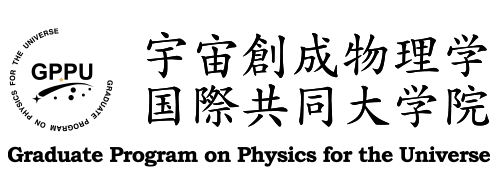GPPU Seminar
Quarkonia spectroscopy in the quark-gluon plasma
Georg Wolschin
(Heidelberg University)
Date
16:00-18:00, September 07th, 2021Place
Zoom registration mapAbstract
The spectroscopic properties of heavy quarkonia are substantially different in the quark-gluon plasma (QGP) that is created in relativistic heavy-ion collisions as compared to the vacuum situation that can be tested in pp collisions at the same center-of-mass energy. Here the dissociation of the Υ(nS) and χb(nP) states in the hot QGP is considered. Quarkonia dissociation occurs due to (1) screening of the real quark-antiquark potential, (2) collisional damping through the imaginary part of the potential, and (3) gluon-induced dissociation. In addition, reduced feed-down plays a decisive role for the spin-triplet ground state. Transverse-momentum and centrality-dependent data are well reproduced in Pb-Pb collisions at LHC energies. In the asymmetric p-Pb system, alterations of the parton density functions in the lead nucleus account for the leading fraction of the modifications in cold nuclear matter (CNM), but the hot-medium effects turn out to be relevant in spite of the small initial spatial extent of the fireball, providing additional evidence for the generation of a quark-gluon droplet.
Point
GASP 1Contact: Yusuke Tanimura (tanimura [at] nucl.phys.tohoku.ac.jp)
